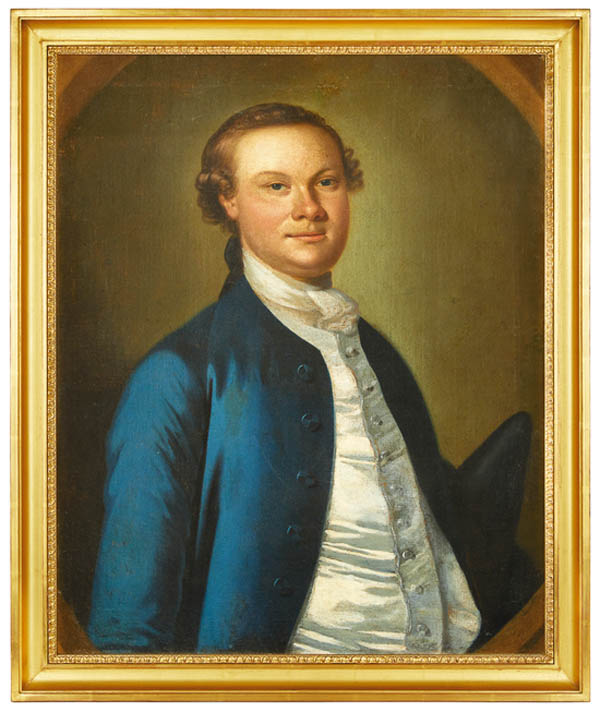The Market Town And The Metropolis Focus Exhibit Now Open At Historic Rock Ford
Portraits Of Lancaster Countians Judge Henry Slaymaker And Faithful Richardson Slaymaker By Gustavus Hesselius And His Son, John, On View
May 05, 2023
Historic Rock Ford is delighted to announce a new focus exhibit in the Snyder Gallery for its 2023 tour season. The Market Town and The Metropolis: 18th Century Lancaster and Its Artistic Connections to Philadelphia recently opened. Throughout most of the 18th century, Philadelphia remained the largest city in the American colonies and then in the fledgling United States. In many ways, it was Americas political, financial and cultural epicenter. During this same period, the Borough of Lancaster was one of the largest non-coastal towns in America and was closely tied to Philadelphia both commercially and culturally. In addition to serving as a source of raw materials, food and supplies for Philadelphia as well as an important market for its elegantly crafted goods, Lancaster, through which passed the great wagon road, increasingly came to serve as Philadelphia and its ports gateway to western settlement. This already strong connection was both manifested by and strengthened with the completion of the Lancaster-Philadelphia Turnpike in 1794, the first long-distance macadam road in the new United States. With Lancasters growing affluence and stronger ties to Philadelphia as the 18th century progressed, the connections between both in the fields of the decorative arts increasingly flourished. Lancaster furniture makers developed unique styles that, while clearly influenced by Philadelphia artisans, did not merely mimic them. Artisans, such as furniture makers Thomas Tufft and Peter Frick, worked in both Lancaster and in Philadelphia. Examples of work attributed to both men will be included in this exhibit and demonstrate influences from both Philadelphia and Lancaster. In the words of the late John Snyder, In addition to the general influence of the coastal metropolis on Lancaster, a more specific role was played by wealthy, educated Lancastrians with strong family and professional links to Philadelphia. These were local tastemakers who introduced new styles to Lancaster by their ownership of imported goods bought in Philadelphia and by their patronage of Philadelphia artists and artisans. Snyder cites Judge Jasper Yeates as the most significant of these tastemakers. The exhibit will include a rare, late 18th-century Philadelphia Chippendale camelback sofa believed to have once belonged to Yeates that is part of a private family collection and which has never before been publicly exhibited. Also included among such Lancaster County tastemakers were those affluent persons who had their portraits painted in Philadelphia. This exhibit features portraits of Lancaster Countians Judge Henry Slaymaker and Faithful Richardson Slaymaker by early Swedish immigrant to Philadelphia, Gustavus Hesselius, and by his son, John. These outstanding portraits are also part of a private collection and have not been publicly exhibited since 1971 at the Pennsylvania Academy of Fine Arts. It is the hope and expectation that this exhibit will highlight the mutual influence in the decorative arts between 18th century Lancaster and Philadelphia. Because of the significance of the pieces included as well as the unique nature of the exhibit, Historic Rock Ford believes that it will garner not only regional but national attention that will amplify the significance of the museum as a destination for all those who cherish early American decorative arts. The Richard C. von Hess Foundation is the founding sponsor for this exhibit. This exhibit is also funded in part through a grant approved by the Americana Corner Preserving America Grant Program. Admission to the 2023 Focus Exhibit is included with the purchase of an admission ticket. This Focus Exhibit runs through Oct. 31. Historic Rock Ford is located at 881 Rockford Road, Lancaster, Pa., and is comprised of the General Edward Hand Mansion and the John J. Snyder Jr. Gallery of Early Lancaster County Decorative Arts. The historic site is operated by the nonprofit Rock Ford Foundation. For additional details, visit www.HistoricRockFord.org. Photos credit New Leaf Photography.


SHARE
PRINT